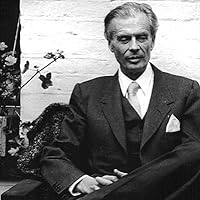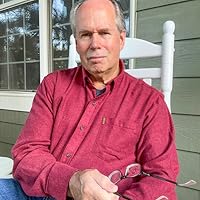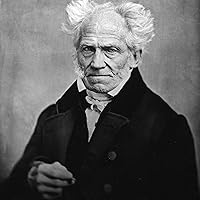Naivete Quotes
Quotes tagged as "naivete"
Showing 1-30 of 54

“It is easy, when you are young, to believe that what you desire is no less than what you deserve, to assume that if you want something badly enough, it is your God-given right to have it.”
― Into the Wild
― Into the Wild

“People don't want children to know what they need to know. They want their kids to know what they ought to need to know. If you're a teacher you're in a constant battle with mildly deluded adults who think the world will get better if you imagine it is better. You want to teach about sex? Fine, but only when they're old enough to do it. You want to talk politics? Sure, but nothing modern. Religion? So long as you don't actually think about it. Otherwise some furious mob will come to your house and burn you for a witch.”
― The Gone-Away World
― The Gone-Away World

“The deeper reality is that I’m not sure if what I do is real. I usually believe that I’m certain about how I feel, but that seems naive. How do we know how we feel?…There is almost certainly a constructed schism between (a) how I feel, and (b) how I think I feel. There’s probably a third level, too—how I want to think I feel.”
― Eating the Dinosaur
― Eating the Dinosaur

“The articles were extremely eye-opening. Not just in Teen Vogue but in Seventeen and CosmoGirl as well. They were all about being yourself, staying natural, loving your body as is, and going green! The messages were the exact opposite of Vik and Viv's.
Hmmmmm.
Frankie turned to face the full-length mirror that was up against the yellow wardrobe. She opened her robe and examined her body. Fit, muscular, and exquisitely proportioned, she agreed with the magazines. So what if her skin was mint? Or her limbs were attached with seams? According to the magazines, which were - no offense! - way more in touch with the times than her parents were, she was suppose to love her body just the way it was. And she did! Therefor if the normies read magazines (which obviously they did, because they were in them), then they would love her, too. Natural was in.
Besides she was Daddy's perfect little girl. And who didn't love perfect?”
― Monster High
Hmmmmm.
Frankie turned to face the full-length mirror that was up against the yellow wardrobe. She opened her robe and examined her body. Fit, muscular, and exquisitely proportioned, she agreed with the magazines. So what if her skin was mint? Or her limbs were attached with seams? According to the magazines, which were - no offense! - way more in touch with the times than her parents were, she was suppose to love her body just the way it was. And she did! Therefor if the normies read magazines (which obviously they did, because they were in them), then they would love her, too. Natural was in.
Besides she was Daddy's perfect little girl. And who didn't love perfect?”
― Monster High

“Kissinger projects a strong impression of a man at home in the world and on top of his brief. But there are a number of occasions when it suits him to pose as a sort of Candide: naive, and ill-prepared for and easily unhorsed by events. No doubt this pose costs him something in point of self-esteem. It is a pose, furthermore, which he often adopts at precisely the time when the record shows him to be knowledgeable, and when knowledge or foreknowledge would also confront him with charges of responsibility or complicity.”
― The Trial of Henry Kissinger
― The Trial of Henry Kissinger

“All right, so you believe in Santa Claus, and I'll believe in the 'Great Pumpkin.' The way I see it, it doesn't matter what you believe just so you're sincere! (Linus)”
―
―

“His gravest offence had been to accept the world in which he found himself as normal, rational and right.”
― After Many a Summer Dies the Swan
― After Many a Summer Dies the Swan

“All right, Tess. You want it all? You don't care about consequences? Then it is too late. I could tell you to leave him alone. That he's complicated, not in a sexy way, but in a damaged way. I could tell you damage isn't sexy, it's scary. You're still young enough to think every experience will improve you in some long-term way, but it isn't true. How do you suppose damage gets passed on?”
― Sweetbitter
― Sweetbitter

“I know that age, it's a particularly obstinate one, and a thousand bogies won't make you fear the future. A pity we can't change over.”
― Rebecca
― Rebecca

“Most often, what I don’t know will have a vastly greater bearing on my life that what I do know.”
―
―

“I wish I had been what I thought I was; and so debonnaire; and so debonnaire.”
― Dear Scott, Dearest Zelda: The Love Letters of F. Scott and Zelda Fitzgerald
― Dear Scott, Dearest Zelda: The Love Letters of F. Scott and Zelda Fitzgerald

“We all dream of stories with happy endings. We know that, by their nature, "ending" and "happy" never make good roommates. But we force ourselves to believe it anyway. That hope, that naïveté, that is our greatest strength as humans. Stories don't end happy. The best we can do is hope that they leave a good taste in our mouth... licking our lips one last time before leaving the table wouldn't be that bad, right?”
― The Adoption
― The Adoption

“For goodness that is beyond virtue, and
hence beyond temptation, ignorant of the argumentative reasoning by which man fends off temptations and, by this very process, comes to know the ways, of wickedness, is also incapable of
learning the arts of persuading and arguing.”
― On Revolution
hence beyond temptation, ignorant of the argumentative reasoning by which man fends off temptations and, by this very process, comes to know the ways, of wickedness, is also incapable of
learning the arts of persuading and arguing.”
― On Revolution

“On n'est pas sérieux, quand on a dix-sept ans
Et qu'on a des tilleuls verts sur la promenade.”
― Les Cahiers de Douai
Et qu'on a des tilleuls verts sur la promenade.”
― Les Cahiers de Douai

“I'd not felt so much as a pinprick of foreboding or dark premonition about what lay beyond the curve of time.”
― Wild Game: My Mother, Her Lover, and Me
― Wild Game: My Mother, Her Lover, and Me

“Конечно,
почтенная вещь - рыбачить.
Вытащить сеть.
В сетях осетры б!
Но труд поэтов - почтенный паче -
людей живых ловить, а не рыб”
― Стихотворения и поэмы
почтенная вещь - рыбачить.
Вытащить сеть.
В сетях осетры б!
Но труд поэтов - почтенный паче -
людей живых ловить, а не рыб”
― Стихотворения и поэмы

“[H]e was still young enough to think that there was something fundamentally inhuman about thinking more than one step ahead at a time.”
― Star Light
― Star Light

“Nemed was a smart kid, but like almost all kids he operated under the delusion that adults were genuinely as knowledgeable and certain as they pretended to be in front of kids.”
― Terra Incognita
― Terra Incognita

“He slipped off her clothes and covered her eyes with one hand, a blindfold of naivete she wore willingly, relishing his embrace like an idiot inmate who mistakes a straitjacket for a snuggie.”
― The Wake Up
― The Wake Up

“Our progress has been almost exclusively technological, which means that we are able to manipulate the physical world ever more sensationally, to increase the speed, the span, and the powers of material existence without any clear idea of what to do with the time gained and the powers acquired.”
― The Supreme Identity
― The Supreme Identity

“You're young.' she'd continued briskly. 'Life will cure you of naive assumptions. The only thing one can count on is that no else can truly be counted on.”
― The Lake House
― The Lake House

“What happens is that people don’t know, and so they can’t help me,’ he was saying calmly. ‘But when they open their morning newspapers and see that thirty thousand elephants are being killed every year to make paper knives and
billiard balls, and that there’s a man who's doing his damnedest to stop this mass murder, they’ll raise hell. When they hear that out of a hundred baby elephants captured for the zoos eighty die in the first days, you’ll see what public opinion will say. There's such a thing as popular feeling, you know. That’s the kind of thing that makes a government fall, I tell you. All that’s needed is for the people to know.’
’It was intolerable. I listened gaping, absolutely struck dumb. The man had faith in us, totally and unshakably, and that was something, a faith in us that looked as strong, as natural, as irrational as the elements, as the sea or the wind — something, by God, that looked in the end like the force of truth itself. I had to make an effort to defend myself — not to succumb to that amazing naivete. He really believed that people still had the generosity, the heart, in the ugly times we live in, to worry not only about themselves, but about elephants as well. It was enough to make you weep. I stood there in silence, staring at him — admiring him, I should say — with that gloomy, obstinate expression of his, and that damned briefcase. Ridiculous, if you like, yet also disarming, because I felt he was completely convinced by all the beautiful things man has sung about himself in his moments of inspiration. And with it all, a pigheaded obstinacy — the revolting thoroughness of a schoolmaster who’s got it into his head that he’ll make humanity do its homework and would not hesitate to punish it if it misbehaved. You can see from what I say that he was a highly contagious man.”
― The Roots of Heaven
billiard balls, and that there’s a man who's doing his damnedest to stop this mass murder, they’ll raise hell. When they hear that out of a hundred baby elephants captured for the zoos eighty die in the first days, you’ll see what public opinion will say. There's such a thing as popular feeling, you know. That’s the kind of thing that makes a government fall, I tell you. All that’s needed is for the people to know.’
’It was intolerable. I listened gaping, absolutely struck dumb. The man had faith in us, totally and unshakably, and that was something, a faith in us that looked as strong, as natural, as irrational as the elements, as the sea or the wind — something, by God, that looked in the end like the force of truth itself. I had to make an effort to defend myself — not to succumb to that amazing naivete. He really believed that people still had the generosity, the heart, in the ugly times we live in, to worry not only about themselves, but about elephants as well. It was enough to make you weep. I stood there in silence, staring at him — admiring him, I should say — with that gloomy, obstinate expression of his, and that damned briefcase. Ridiculous, if you like, yet also disarming, because I felt he was completely convinced by all the beautiful things man has sung about himself in his moments of inspiration. And with it all, a pigheaded obstinacy — the revolting thoroughness of a schoolmaster who’s got it into his head that he’ll make humanity do its homework and would not hesitate to punish it if it misbehaved. You can see from what I say that he was a highly contagious man.”
― The Roots of Heaven

“Совет, что художникам лучше бы следовало не так много думать - а ведь всякая свобода безусловно приводит их к размышлению, - не более чем адаптированный и выпотрошенный массовой культурой траур по утраченной наивности.”
― Philosophy of New Music
― Philosophy of New Music
“Мы давно не встречались: я и моя книжная закладка”
― Воспоминания о будущем. Избранное из неизданного
― Воспоминания о будущем. Избранное из неизданного

“SOUVENIR:
I am there swimming with sharks
in a black and white photo of Italy
the sun is free from clouds
and I am smiling”
― Mystical Tides
I am there swimming with sharks
in a black and white photo of Italy
the sun is free from clouds
and I am smiling”
― Mystical Tides

“And people always think there’s hope, even when they’re standing over an open grave.”
― Life with a Star
― Life with a Star
“Sincerity is frequently written off as an immature stance. Naiveté and earnestness often co-exist, but they are not necessarily the same thing. Naiveté is a simple lack of knowledge and experience. Earnestness is a way of BEING in the world: sometimes by default of innocence, but also as a conscious, informed choice to reject cynicism and live life in an authentic way. To be earnest is to face each day with an open spirit, as opposed to living one's life crouched in an impermeable, defensive posture. For many in our culture, it is a much greater sin to be a gullible idealist than a cruel cynic.”
― Art from Your Core: A Holistic Guide to Visual Voice
― Art from Your Core: A Holistic Guide to Visual Voice
All Quotes
|
My Quotes
|
Add A Quote
Browse By Tag
- Love Quotes 97k
- Life Quotes 75.5k
- Inspirational Quotes 72.5k
- Humor Quotes 43.5k
- Philosophy Quotes 29.5k
- Inspirational Quotes Quotes 27k
- God Quotes 26k
- Truth Quotes 23.5k
- Wisdom Quotes 23.5k
- Romance Quotes 23k
- Poetry Quotes 22k
- Death Quotes 20k
- Happiness Quotes 18.5k
- Life Lessons Quotes 18.5k
- Hope Quotes 18k
- Faith Quotes 18k
- Quotes Quotes 16.5k
- Inspiration Quotes 16.5k
- Spirituality Quotes 15k
- Religion Quotes 15k
- Motivational Quotes 15k
- Writing Quotes 14.5k
- Relationships Quotes 14.5k
- Life Quotes Quotes 14k
- Love Quotes Quotes 13.5k
- Success Quotes 13.5k
- Time Quotes 12.5k
- Motivation Quotes 12k
- Science Quotes 11.5k
- Knowledge Quotes 11k




